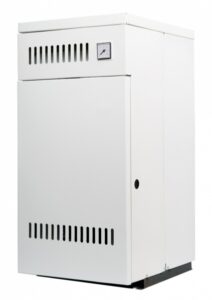Your boiler is a vital component of your home, providing much-needed warmth and hot water. However, like any appliance, it can face wear and tear over time. This leads to the inevitable question: Do you schedule another round of repairs, or is it finally time to consider a boiler replacement Black Forest?
In this guide, we’ll explore the signs that indicate your boiler needs attention, the pros and cons of repairs, and when it’s best to opt for a new installation.
Signs Your Boiler Needs Repair
- Irregular heating or hot water issues: If you’ve noticed inconsistent heating or a lack of hot water, it’s a clear signal that something is amiss with your boiler. These issues could stem from faulty components or a decline in the overall efficiency of the system.
- Strange noises or vibrations: Boilers are generally meant to operate quietly. If you start hearing strange noises, such as banging or whistling, or feel unusual vibrations, it’s time to investigate.
- Leaks and water pressure problems: Any signs of water leaks or fluctuations in water pressure should not be ignored. Leaks can lead to further damage and pose safety hazards, while changes in pressure may affect the boiler’s performance.
- Increase in energy bills: A sudden spike in your energy bills could be linked to a decrease in boiler efficiency. As boilers age, they may become less energy-efficient, causing your heating costs to soar.
Signs It’s Time to Replace Your Boiler
- Age of the boiler: Boilers typically have a lifespan of 15–20 years. If your boiler is approaching or surpassing this age range, it may be more economical to invest in a new, energy-efficient model.
- Frequency of repairs and their costs: If you find yourself calling in professionals for repairs more frequently, it’s a sign that your boiler may be on its last legs. The cumulative cost of these repairs may exceed the investment in a new system.
- Energy efficiency consideration: Newer boilers are designed with advanced technology for improved energy efficiency. Upgrading to a modern model can result in significant savings on your energy bills over time.
- Safety concerns with an aging system: As boilers age, there’s an increased risk of safety issues. If you notice any signs of carbon monoxide leaks or other safety concerns, it’s crucial to prioritize the well-being of your household and consider a replacement.
Weighing Repair vs. Replacement
When deciding between repair and replacement, it’s essential to consider the long-term costs. While repairs may offer a temporary solution, investing in a new, energy-efficient boiler can provide more significant benefits in terms of both cost savings and improved performance.
- Cost comparison over the long term: Calculate the cumulative costs of repairs and compare them to the upfront investment in a new boiler. In many cases, the long-term savings from increased energy efficiency can outweigh the initial cost.
- Environmental impact and energy efficiency: Upgrading to a newer, energy-efficient boiler not only benefits your wallet but also reduces your carbon footprint. Modern boilers are designed to minimize environmental impact while maximizing efficiency.
- Assessing the overall condition of the boiler: Consult with professionals to assess the overall condition of your boiler. They can provide valuable insights into its current state, potential future issues, and the most cost-effective course of action.
When the decision is made to replace your boiler, enlist the help of our professionals to install it. This job requires technical expertise to ensure optimal performance and safety.
Robbins Heating & Air Conditioning offer full service for boiler installation and repair. Call us today for service in Colorado Springs and the surrounding area.

